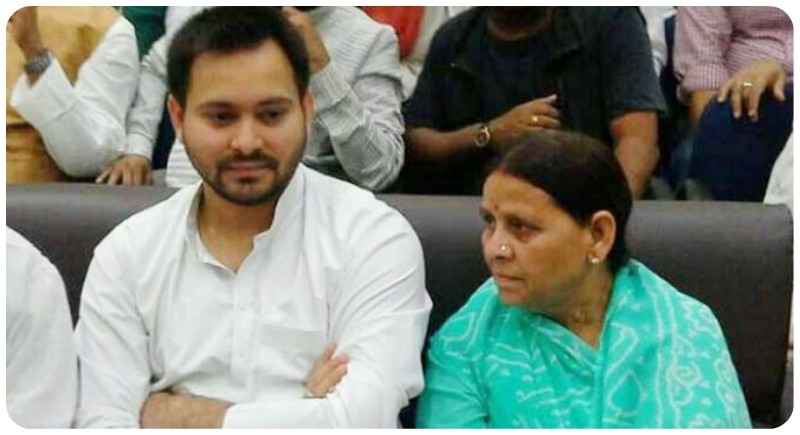IRCTC scam case: Delhi court makes Lalu Prasad’s wife Rabri Devi, son Tejashwi Yadav in free bees by granting bail
New Delhi, October 6: A Delhi Court on Saturday granted a bail to RJD supremo Lalu Prasad's wife Rabri Devi, son Tejashwi Yadav and other accused in the IRCTC money laundering case. The court was hearing a case related to alleged irregularities in granting operational contract of two Indian Railway Catering and Tourism Corporation (IRCTC) hotels to a private firm.

The Patiala House Court granted a regular bail to the accused that were present at the hearing. The Central Bureau of Investigation (CBI) had opposed the bail plea saying 'regular bail will hamper the case investigation'. The next hearing in the case is scheduled on 19th November. Accused Lalu Yadav will appear via video conferencing.
Earlier, the Enforcement Directorate had said that it had enough evidence to charge Lalu, his wife, Rabri, and Tejashwi Yadav, along with former minister Premchandra Gupta and his wife Sarla, as well as former IRCTC Managing Director BK Agarwal.
The CBI, too, is investigating the case and in April this year, said it had enough evidence to implicate the Yadav family in the case. The CBI had registered a case in July last year and carried out searches at 12 locations in Patna, Ranchi, Bhubaneswar and Gurgaon in connection with the case.
The former CM and the IRCTC officials have been accused of allegedly misusing their position for granting sub-lease of the rights of two railway hotels at Puri and Ranchi to Ms Sujata Hotel Pvt. Ltd. owned by Vijay and Vinay Kochhar.
In return, 358 decimal of land was transferred to Ms Delight Marketing Company Pvt Ltd (a company owned by family of P C Gupta who is a close associate of Prasad and an MP from RJD) in February 2005 at a rate lesser than the then market value.
The agency has accused that Rabri Devi and her son Tejashwi got a valuable piece of land transferred to their name by way of share purchase at nominal prices. It further said that that the purchase was made using funds of ‘dubious origin’ and had been laundered through several groups of companies.